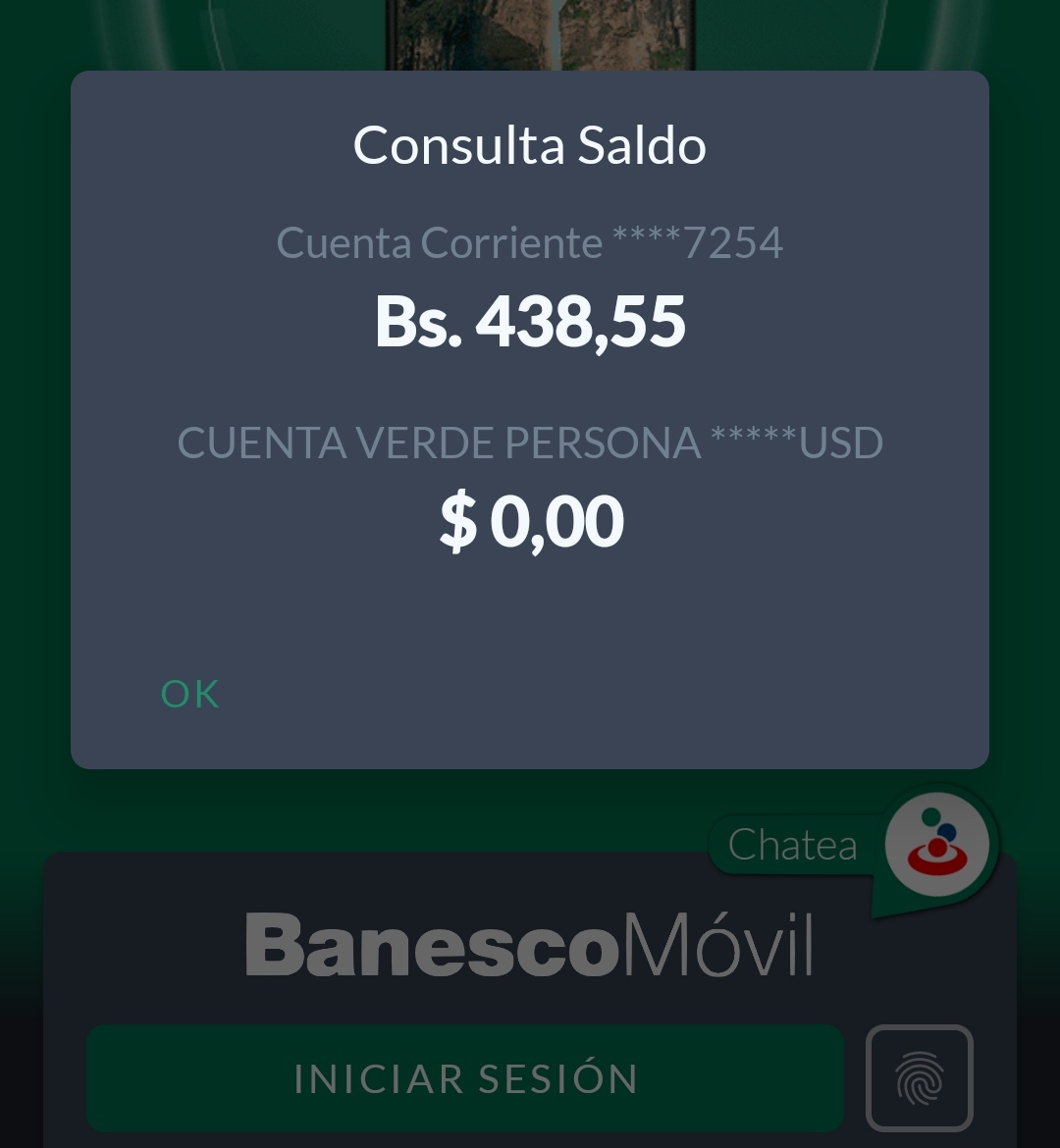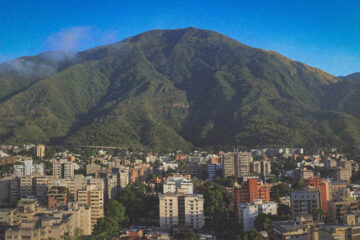There’s one particular subject in the large list of trials and tribulations that Venezuelans have had to deal with for the past two decades that I wanna talk about today: The matter of obtaining access to foreign banking instruments from within these borders, being able to receive payments from abroad, being able to “safeguard” these funds from inflation — and of course, the ever present and evolving limitations, dangers, and challenges that go along with it.
This particular subject is relatively not a new thing, but in recent years it’s become a matter of life and death for many, including yours truly — that much I’ll attest to.
Foreign currency, be it U.S. Dollars. Euros, or what have you, have been a complicated affair in Venezuela since 2003, when the Supreme and Eternal Commander (actual title) Hugo Chávez implemented a series of draconian currency control measures that effectively disconnected local banking instruments from the outside world.
These measures not just heavily rationed Venezuelans’ access to foreign currencies through yearly allotments, they eventually made it illegal to even hold and trade in foreign currency — these measures eventually became a major factor in our economic collapse, but that’s a whole other subject.
Although the damage these measures caused throughout the years were severe and almost irreparable, the currency control measures began to be eased (but not outright removed in its entirety) by 2018. This allowed us to forestall our complete collapse, and gave forth to the new era of a pseudo-dollarization of what’s left of our economy.
I say all this because, due to those restrictions and the hyperinflation spiral that we went through in recent years, people’s ability to save money here was utterly demolished — so, being able to obtain instruments, be it foreign bank accounts, payment processors, and even cryptocurrency wallets, became a matter of utmost importance, because there was no point in saving money at your local currency bank when it was rapidly losing value by the hour.
This may be an easy task in most countries, but that wasn’t the case here. Fortunately, things have slowly begun to improve in recent years, and nowadays there are more ways to attain these instruments compared to, say, six years ago. That said, our options remain somewhat limited still.
To this day, the sheer majority of the country do not have access to a “proper” bank account, and by proper I mean an account that not just works with local currency, but allows you to freely exchange currencies, make international purchases through a debit/credit card, and whatnot.
The same can be said about “digital wallets” and other forms of electronic payment processing services that allow you to “save” money in their respective wallets/balances — even if these are essentially functional to the dreaded threat of digital banking that’s looming on the horizon.
This has been an uphill battle for local artists, writers, programmers, and any and all kinds of people that, like me, work for a foreign entity/company, as they need to rely on either foreign bank accounts (which in many cases are not as easy to open as a Venezuelan citizen) or some of the online wallets/payment processors that offer its services here to be able to receive and make use of their payment money — always with the uncertainty that these may shutdown services in this country at a moment’s notice.
Even before hyperinflation spiral that we went through in recent years twice destroyed our local currency, people from all shapes and sizes sought to find a way to open a foreign bank account — even my mother attempted to do it a couple times, as at the time, local laws forbade the free use of foreign currency in Venezuelan territory.
Nowadays, local banks have begun to offer local “USD” accounts that are quite limited. For example, my local bank account — which, by the way, tried to get me arrested in November 2017 after they accused me of “money laundering” the equivalent to $75 at the time — now offers a “green” U.S. Dollar account.
The account allows you to, yes, deposit your own U.S. dollars and receive USD deposits from others, but you can’t really spend it freely, as it’s more of a “custody” reservoir account that you can tap into to convert the funds into Bolivars for payments.

I didn’t actually request to open a “green” account, as I did not feel comfortable providing the sheer amount of information they required (not to mention that they already tried to get me arrested over the equivalent of $75 in Bolivars once). Still, they just gave it to me a few months ago out of the blue.
Other banks (at least two as far as I know) are now offering accounts that work at an “international” level, and are even offering debit cards that work internationally, something unheard of in this country since before January 2003, when the currency controls were implemented and you needed to go through an absurdly extensive bureaucracy to be allowed to spend a certain amount of foreign currency in either online purchases, or abroad if you had to travel for X or Y reason.
All of these banking-related woes can be easily overridden by people who were fortunate enough to have had a U.S. visitors visa and were able to travel and open a bank account there sometime in the past — especially those under the Zelle payment network, as it essentially puts you at the highest payment caste in this country.
If you do have access to Zelle here then congratulations, you have the “Best in Slot” weapon in this metaphorical Venezuelan Open World MMO.
Now that the official exchange rate is not that different from the “black market” one, foreign debit cards are more handy than ever, as it’s an effortless way to pay for stuff here. Most of the point of sale readers. treat them as credit cards, and payments are done in local currency (at official rates), so banks may charge you a small exchange rate conversion fee. Some places do offer “international” point of sale readers, even the “totally not a laundering front” stores that you can find here and there, so your mileage may vary.
With traditional local banking options being this limited, most have opted to “digital” banking and wallet/payment processors as a means to have something that works — however, some previously available options such as Uphold and Wise no longer offer their services in the country, which screwed a lot of freelancers.
Zinli and Wally are one of the most popular ones these days, and are two services that provide you with a reloadable debit card, which is a solid and viable option if you do not have access to proper foreign banking resources. Reloading these cards is easier for some than others, and may involve going through one currency to crypto, and then into the card, with all the fees that this process may incur.

PayPal is the Russian Roulette in all of this, as it has been known to be very trigger happy when it comes to suspending Venezuelan accounts even though they’ve never suspended their services here.
Verifying a Venezuelan account was an odyssey of its own, and close to impossible for many, as most credit cards here would not work for foreign payments (and thus were unable to be used for verification) unless you were authorized a yearly foreign currency spending by the government and the card was given clearance for it (until they stopped doing that).
Some saw in this a business opportunity, of course, and offered “verification” services, some more shady than others.
Nowadays, there are easier ways to obtain say, a virtual card or instrument that allows you to verify your account without going through more convoluted means — but still, it is a Russian Roulette, and you’re constantly at risk of getting suspended, so you cannot (and should not) treat it as a savings bank account.
About five years ago, a friend of mine who’s an artist got her account suspended at the worst possible moment. She had her Venezuela -> Argentina escape funds stored in her balance, which she had earned from the hard work of her art commissions — only to have her account frozen shortly before her departure from the country.
The money, if I recall correctly, was never reinstated, and she had to find other ways to arrive at her destination. It was a really messed up situation that she shouldn’t have gone through, thankfully she did arrive in Argentina safe and sound, and has been living there since.
There’s a quite limited amount of stores that do accept PayPal as a payment option for their goods and services, albeit with added extra fees, so it’s not like you can freely use that money like someone in the United States would be able to anyways.
Those extra fees are separate from the 16 percent VAT and extra 3 percent “because you’re paying with foreign currency lmao” taxes that we have to pay here, so your money is further reduced through this route.
While it is obviously not allowed in their Terms of Service, many have “sold” their balance for Bolivars. For the record, I do not endorse this practice, but I cannot judge anyone who ends up doing it, it’s a risk they decide to take.
The act of “selling” balance often ends with the seller losing upwards of 30 percent of their money in “commission fees” that ends up in the hands of the people who facilitate such behind-the-table exchanges.
Cryptocurrencies remain as it were, a “clean” way to receive payments and convert them into Bolivars for local spending, with Binance eclipsing other services by far. It does come with its risks, so you’re advised to only carry out exchanges with people marked with high reputation ratings and whatnot, as it minimizes a dreaded phone call from the local police’s “computer crime division.”
Compared to say, PayPal, crypto is far more accepted here for payments, with stablecoins being more preferable than Bitcoin or Ethereum — stablecoins such as USDT are used to essentially “emulate” the functions of a USD bank account, so to speak.
It sure has saved my ass more than once, and even helped me save my brother’s tooth two years ago.
The need for having a way to “save” foreign cash has regrettably (but not surprisingly) led to scams all around. One such example was a service known as AKB Fintech, which presented itself as a solution for anyone from professionals such as journalists, doctors, lawyers, or even building’s condominium groups to save money, receive and send payments to friends and family, et al.
Then they pulled the rug and fucked up a lot of people in the process.
Think what you will of the United States Dollar, lust for other currencies such as the Yuan if that gets your rocks off, but the lingua franca currency is the only thing keeping what’s left of this country afloat — and even the ruling socialist regime knows it, that’s why they’re always finding ways to keep more and more of people’s USD through taxes.
Due to personal security reasons, my own experiences with all of this is something I only intent to write once I’m outta here, which, God willing, is going to be soon.
Until the next one,
-Kal


